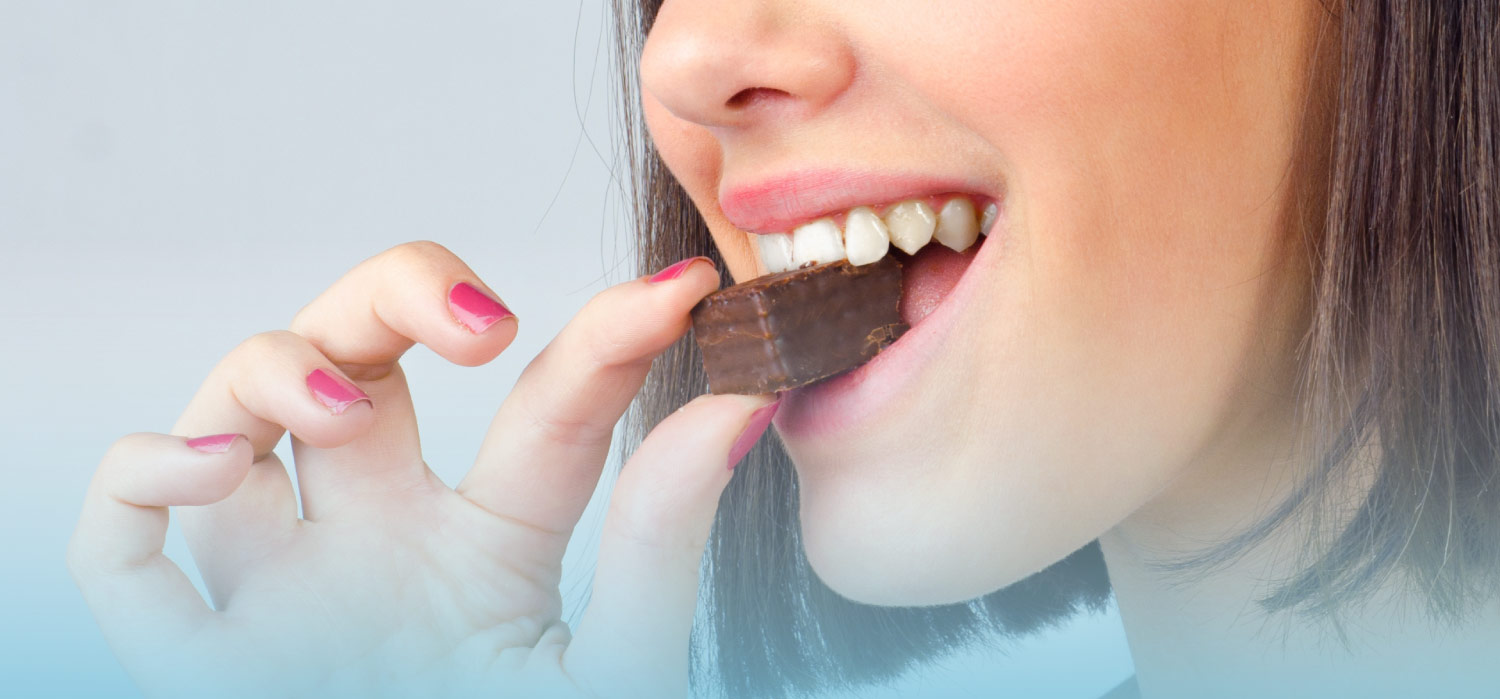Are your teeth healthy enough to withstand Valentine’s Day candy? The answer is no. Regardless of how healthy your teeth and gums are, they are still susceptible to acid attacks from Valentine’s Day candy, even if you usually avoid sweets or have never had a cavity. Luckily, there are ways you can protect your teeth while still enjoying all the decadent, heart-shaped chocolates and candies your love provides this Valentine’s Day.
1. Limit Your Candy Consumption
One of the best things you can do to protect your teeth is to limit your consumption of Valentine’s Day chocolates and hard candies. If you usually stick a bowl of candy or the box of chocolates near your keyboard or on your desk, move the candy to a location that is less accessible so that you do not eat candy mindlessly all day.
Each time you eat a piece of candy, it can cause your teeth to undergo an acid attack for as long as 20 minutes. If you eat candy or sticky, sweet chocolates all day, you could be subjecting your teeth to a prolonged acid attack, which can demineralize your enamel. When the enamel protecting your teeth loses minerals, it can create white spots and eventually soft spots that could develop into cavities.
2. Only Eat Candy Directly After Meals
When you eat food, it increases the saliva production in your mouth. Saliva is essential for healthy teeth and gums. It keeps the membranes of your mouth moist and helps keep germs and bacteria at bay. Saliva also bathes the teeth in minerals and other nutrients that help keep your enamel strong, acting as a natural healing mechanism in the fight against tooth decay. When you eat candy after a meal, the saliva helps wash the sticky sugar from your teeth, which can help with candy-fueled acid attacks.
3. Avoid Candy that Could Harm Your Dental Crowns or Bridges
If you have dental work, like crowns or bridges, certain types of candy are going to be worse for your dental health than others. Hard candy can chip or crack the porcelain, as can chocolate covered nuts. You should also avoid candies with caramel or sticky and gooey centers, as these can tug on crowns and bridges, causing them to loosen.
4. Be Mindful of Your Braces or Teeth Straightening Aligners
If you have braces or aligners that you are using to straighten your teeth, Valentine’s Day should not be an excuse to ignore your teeth health. Individuals with traditional braces should still avoid overly sticky, chewy, and hard candy.
Hard candy can break the wires or brackets, leading to an uncomfortable situation that will need to be repaired by a dentist.
Super chewy or sticky candies can get lodged in the brackets, and the sugary film created when the candy mixes with saliva can be impossible to clean from around the brackets, leading to prolonged acid attacks and an increase in developing cavities.
While there are no specific food restrictions when wearing clear teeth straightening aligners, you will still need to remove them when eating Valentine’s Day candy. Before you can reinsert your aligners, you should brush, floss, and rinse your teeth to remove all the particles from the candy and any sugary film that may be left on your teeth. Failing to completely remove all the candy and sugar from your teeth creates a “sugar bath” when you reinsert your aligners.
5. Remember to Schedule Your Regular Dental Checkups
If you over-indulge on Valentine’s Day, a good dental cleaning can help restore your gum and teeth health. Dental examinations and cleanings check for tooth decay, cavities, weakened enamel, gingivitis, and periodontal disease. They also include thoroughly cleaning all the plaque and tartar from your teeth and below the gumline. This can help prevent gum disease and catch any cavities so that they can be filled.
Follow these tips to show your teeth some love this Valentine’s Day, and you’ll maintain a healthy, brilliant smile that will last as long as your love.
Triangle Dentistry located in Raleigh, NC provides a state-of-the-art facility that offers exceptional general dental and specialty services guided by empathy of patient’s needs and desires. Services range from dental crowns and implants to veneers and whitening procedures. For further information, questions or to schedule an appointment, contact the office at (919) 747-3592.
